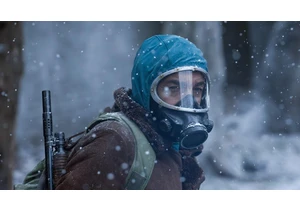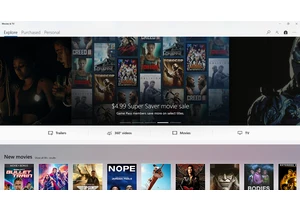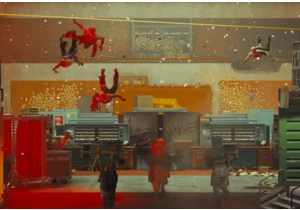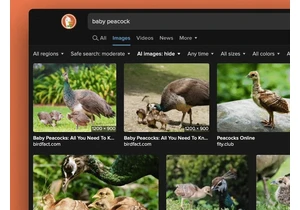Eliza McNitt is no stranger to new media. Her 2017 project, Fistful of Stars, was a fascinating look at stellar birth in virtual reality, while her follow-up Spheres explored black holes and the death of stars. Now with her ">short film Ancestra, McNitt has tapped into Google's AI tools to tell a deeply personal story. Working with Google Deepmind and director Darren Aronofsky's studio Primordial Soup, McNitt used a combination of live-action footage and AI-generated media to tell the story of her own traumatic birth.
The result is an uncanny dramatic short where the genuine emotion of the live-action performance wrestles agains the artificiality of AI imagery. The film begins when the lead's (Audrey Corsa, playing McNitt's mother) routine natal care appointment turns into an emergency delivery. From that point on we hear her opine on how her child and all living things in the universe are connected — evoking the poetic nature of Terrence Malick's films. We jump between Corsa's performance, AI footage and macro- and micro-photography. In the end, Corsa holds a baby that was inserted by Google's AI, using prompts that make it look like McNitt as an infant.
There's no escaping the looming shadow of Google's AI ambitions. This isn't just an art film — it's an attempt at legitimizing the use of AI tools through McNitt's voice. That remains a problem when Google's models, including Veo and other technology from DeepMind, have been trained on pre-existing content and copyrighted works. A prestigious short coming from Darren Aronofsky's production studio isn't enough to erase that original sin.
"I was challenged to create an idea that could incorporate AI," McNitt said in an interview on the Engadget Podcast. "And so for me, I wanted to tell a really deeply personal story in a way that I had not been able to before... AI really offered this opportunity to access these worlds where a camera cannot go, from the cosmos to the inner world of being within the mother's womb."
When it comes to justifying the use of AI tools, which at the moment can credibly be described as plagiaristic technology, McNitt says that's a decision every artist will have to make for themselves. In the case of Ancestra, she wanted to use AI to accomplish difficult work, like creating a computer generated infant that looked like her, based on photos taken by her father. She found that to be more ethical than bringing in a real newborn, and the results more convincing than a doll or something animated by a CG artist.
"I felt the use of AI was really important for this story, and I think it's up to every artist to decide how they wanna use these tools and define that," she said. "That was something else for me in this project where I had to define a really strong boundary where I did not want actors to be AI actors, [they] had to be humans with a soul. I do not feel that an performance can be recreated by a machine. I do deeply and strongly believe that humanity can only be captured through human beings. And so I do think it's really important to have humans at the center of the stories."
To that end, McNitt also worked with dozens of artists create the sound, imagery and AI media in Ancestra. There's a worry that AI video tools will let anyone plug in a few prompts and build projects out of low-effort footage, but McNitt says she closely collaborated with a team of DeepMind engineers who crafted prompts and sifted through the results to find the footage she was looking for. (We ran out of time before I could ask her about the environmental concerns from using generative AI, but at this point we know it requires a significant amount of electricity and water. That includes demands for training models as well as running them in cloud.)
"I do think, as [generative AI] evolves, it's the responsibility of companies to not be taking copyrighted materials and to respect artists and to set those boundaries, so that artists don't get taken advantage of," McNitt said, when asked about her thoughts on future AI models that compensate artists and aren't built on stolen copyrighted works. "I think that that's a really important part of our role as humans going forward. Because ultimately, These are human stories for other human beings. And so it's, you know, important that we are at the center of that."
This article originally appeared on Engadget at https://www.engadget.com/ai/engadget-podcast-ancestra-director-eliza-mcnitt-defends-ai-as-a-creative-tool-150042942.html?src=rss https://www.engadget.com/ai/engadget-podcast-ancestra-director-eliza-mcnitt-defends-ai-as-a-creative-tool-150042942.html?src=rssAccedi per aggiungere un commento
Altri post in questo gruppo


Microsoft has rather abruptly closed down its Movies & TV app, which is accessible on Xbox and Windows PCs via the Microsoft Store. This allowed people to rent or buy movies or TV shows natively th

Remedy has announced plans to fix FBC: Firebreak and restore the good will of




